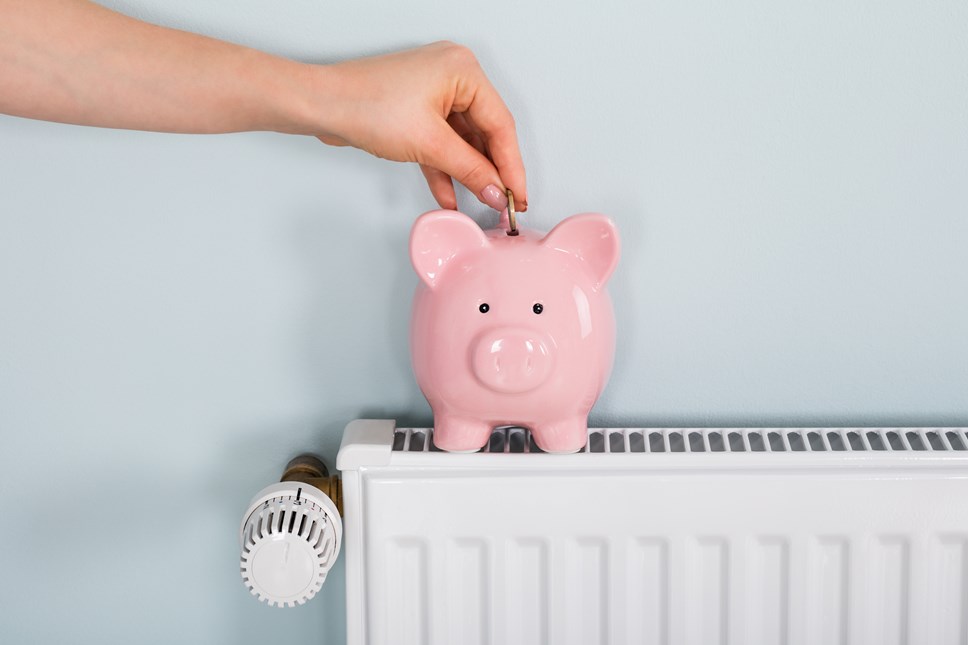
Heavier curtains, quicker showers and slow cooking: the top ways people are trying to save on their energy costs
New research from Go.Compare reveals the measures people are taking to try and save on their energy bills at home
Go.Compare Energy has released new research which reveals the extent to which people are trying to minimise their energy usage around the home.
The survey took place in November, asked more than 2000 people what, if anything, they are doing to try and save on energy costs in their day-to-day lives.
Only 6% of people that took part said they hadn’t made any changes to their routines in light of the increased cost of gas and electricity.
The research revealed the top ways Brits are trying to use less energy, included turning off lights (63%) when they leave a room, putting the heating on less (54%) and turning off appliances that aren’t being used (51%).
Overall, the top ten ways people are trying to save on their energy costs around the home were:
- Turning off lights when they leave the room
- Putting the heating on less
- Turning off appliances when they’re not being used / in standby mode
- Not filling the kettle to the top
- Washing clothes on a lower heat setting
- Having quicker showers
- Heating certain rooms and not others
- Changing light bulbs to LED bulbs
- Using a slow cooker instead of the oven
- No longer using the tumble dryer
Other measures people said they are taking to cut back on energy bills included showering at the office (5%) and fitting heavier curtains (10%).
Gareth Kloet, of Go.Compare Energy, said on the survey: “This research just goes to show how the impact of increasing energy costs has infiltrated almost every household across the UK. And now we are in the colder months, it’s getting much harder to avoid putting the heating or lights on, so frustratingly, it’s even more difficult to keep the bills down.
“We know that the energy crisis has gone past simple energy saving measures but with only so much control over the situation, it’s understandable that people are trying to take matters into their own hands - and homes. No one wants to be paying more than they need to for energy, and we all are. So, the only options open to us are to use appliances less and try to minimise costs where we can.
“While it’s good news that the energy price guarantee will remain in place until April 2023 at the current rate of £2500, bill payers have to remember that this could then increase to around £3000, as announced in the Autumn budget – a potential further 20% increase. With this in mind, householders need to do all they can now to mitigate that increase, with measures such as good budgeting, increasing direct debits (if they can afford to) and continuing to make more energy efficiencies around the home,” Gareth added.
Go.Compare has developed an energy calculator which allows you to look at how long you use various appliances in the home and how much this could ultimately cost. This can be found here: https://www.gocompare.com/gas-and-electricity/guide/energy-calculator/.
For some further guidance on how to save energy, you can also visit here: https://www.gocompare.com/gas-and-electricity/guide/energy-saving-tips/.
-Ends-
Contact Information
Rosie Johns
Notes to editors
For further information please contact:
Lynsey Walden on lynsey.walden@gocompare.com, or Kath Chadwick on Kathryn.chadwick@gocompare.com.
Notes to editors
*1On 4th-7th November 2022, 2077 randomly selected Great British adults was executed by Maru/Blue. For comparison purposes, a probability sample of this size has an estimated margin of error (which measures sampling variability) of +/- 2.1%. The results have been weighted by age, gender, region and social grade to match the population, according to Census data. This is to ensure the sample is representative of the entire adult population of Great Britain. Discrepancies in or between totals are due to rounding.
**https://electricityplans.com/kwh-kilowatt-hour-can-power/ Average 50inch LED television uses around 0.016kWh of energy, 0.016 X 1,400 hours = 22.4kWh. 1400hours/24 = 58.3 days.
For further information please contact:
Lynsey Walden on lynsey.walden@Gocompare.com, or Kath Chadwick on Kathryn.chadwick@Gocompare.com.
Keep up-to-date with Go.Compare on Twitter; @Go.Compare
About Go.Compare
Go.Compare is a comparison website that enables people to compare the costs and features of a wide variety of insurance policies, financial products and energy tariffs.
It does not charge people to use its services and does not accept advertising or sponsored listings, so all product comparisons are unbiased. Go.Compare makes its money through fees paid by the providers of products that appear on its various comparison services when a customer buys through the site.
When it launched in 2006, it was the first comparison site to focus on displaying policy details rather than just listing prices, with the aim of helping people to make better-informed decisions when buying their insurance. It is this approach to comparing products that secured the company an invitation to join the British Insurance Brokers’ Association (BIBA) in 2008, and it is still the only comparison site to be a member of this organisation.
Go.Compare has remained dedicated to helping people choose the most appropriate products rather than just the cheapest and works with Defaqto, the independent financial researcher, to integrate additional policy information into a number of its insurance comparison services. This allows people to compare up to an extra 30 features of cover.
Go.Compare is part of Future Plc and is authorised and regulated by the Financial Conduct Authority (FCA).
More information can be found here www.Go.Compare.com or here https://www.futureplc.com/brands/.
